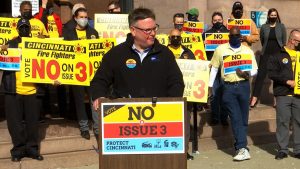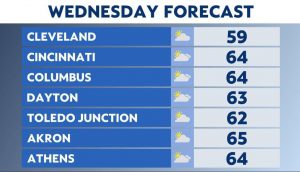(Reuters) – Becton, Dickinson and Co subsidiary C.R. Bard will face trial on Monday over claims that its hernia repair surgical mesh is defective, offering the first test of the potential strength of thousands of lawsuits by plaintiffs around the country alleging that the products caused pain, inflammation and infection.
More than 13,000 lawsuits over Bard’s hernia mesh have been consolidated in a multidistrict litigation before Chief U.S. District Judge Edmund Sargus in Columbus, Ohio, who will also be presiding over the first bellwether trial. The MDL is the third largest in the country.
The company’s potential liability in the litigation is unclear. Bard in 2011 settled about 2,600 lawsuits over an earlier hernia mesh product for $184 million after losing a bellwether trial. Becton Dickinson, which bought Bard in 2017, reported $4.78 billion in revenues last fiscal year.
The plaintiff in the bellwether case, Utah resident Steven Johns, alleges that he suffered “persistent, debilitating pain” and emotional distress after he was implanted with Bard’s Ventralight ST hernia mesh patch in 2015 to repair an abdominal hernia.
A spokesman for Becton Dickinson and its lawyer Eric Alexander of Reed Smith declined to comment on the case. The company has denied allegations that its hernia mesh products are defective.
Johns’ lawyers – Timothy O’Brien of Levin Papantonio Rafferty, Kelsey Stokes of Fleming Nolen Jez, and David Butler of Taft Stettinius & Hollister – could not immediately be reached for comment on Friday.
Bard marketed Ventralight and other mesh products to support damaged tissue following hernia repair surgery. A hernia is a protrusion of an organ through a weak spot in a muscle or collective tissue wall.
Johns said the first surgery was not successful, requiring a second surgery to replace the first Ventralight patch, and a third surgery to repair a recurrence of the hernia.
Like other plaintiffs in the MDL, Johns alleges that the product is defective and “unreasonably dangerous” as designed. He maintains that an anti-adhesive coating used on one side of the mesh to prevent it from sticking to tissue is toxic, and that the polypropylene and polyglycolic acid fibers in the mesh can adhere to tissues and damage them.
He is bringing claims for negligence, design defect, manufacturing defect, breach of warranty, negligent misrepresentation and violation of Utah’s consumer protection laws, among others.
The trial is expected to last just over five weeks and feature testimony from Johns, his treating physician, Bard employees and expert witnesses on both sides.
In addition to the Ohio MDL, Bard is facing state court lawsuits over its hernia mesh. The company said in its most recent quarterly report that more than 25,000 total lawsuits were pending, with most of them in a Rhode Island coordinated litigation, similar to an MDL.
Surgical mesh has been the subject of frequent litigation in recent years. Separate MDLs have been consolidated for similar claims over mesh products sold by Johnson & Johnson’s Ethicon unit and Atrium Medical Corp. No trials have taken place yet in those cases.
Bard and other companies have also faced lawsuits over transvaginal mesh, used to treat pelvic organ prolapse and stress urinary incontinence. The U.S. Food and Drug Administration in 2019 ordered all transvaginal mesh pulled from the market over safety concerns, and Bard last year reached a $60 million settlement with 48 states to resolve claims that it had misleadingly marketed its transvaginal mesh products.
The bellwether case is Johns v. C.R. Bard et al, No. 18-cv-01509, and the MDL is In re Davol Inc/C.R. Bard Inc Polypropylene Hernia Mesh Products Liability Litigation, No. 18-md-02846, U.S. District Court, Southern District of Ohio.
For Johns: Timothy O’Brien of Levin Papantonio Rafferty, Kelsey Stokes of Fleming Nolen Jez, and David Butler of Taft Stettinius & Hollister
For Bard: Michael Brown and Eric Alexander of Reed Smith, Lori Cohen of Greenberg Traurig and William Kloss of Vorys Sater Seymour and Pease




